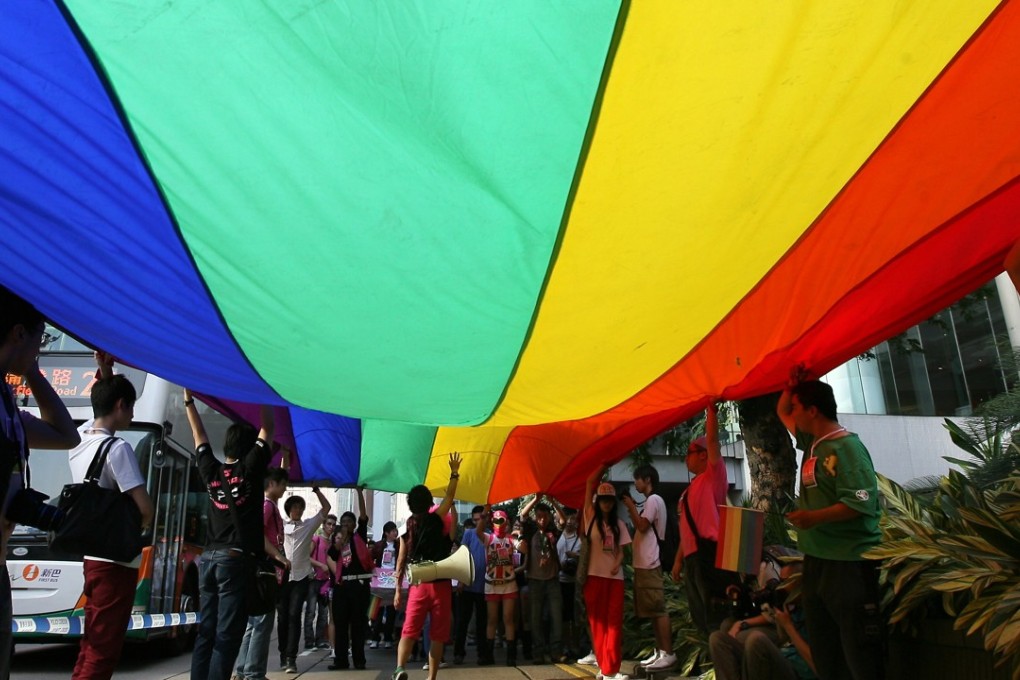Legal entitlements of Hong Kong’s same-sex couples unlikely to change, experts say
Landmark court ruling over spousal visa welcomed by supporters, but lack of anti-discrimination laws means changes require time

The decision to grant a spousal visa to a gay woman has been welcomed by business groups and banks and heralded as a mood change on LGBT rights in Hong Kong – but it won’t affect the legal entitlement of same-sex couples to other benefits, according to experts.
On Monday, the Court of Appeal unanimously ruled that a British expat, identified only as QT, would be given a dependant visa through her same-sex partner who works in Hong Kong – an immigration status previously granted only to heterosexual spouses.
QT, a British citizen, entered into a civil union in England just months before she moved to Hong Kong in 2011 with her partner SS, who had been offered a job in the city.
Lesbian expatriate wins landmark appeal against Hong Kong Immigration Department to secure spousal visa
Gay marriage is not legal in Hong Kong, and there are no anti-discrimination laws over sexual orientation. The case sets a precedent which suggests other same sex spouses will also be eligible for a dependant visa, unless the Immigration Department appeals the decision or is able to find a loophole in applying the decision.
Duncan Abate, an employment lawyer at the Hong Kong office of global law firm Mayer Brown JSM, said Monday’s “brave and forward-thinking” decision was “to be applauded”.
“It is a clear indication to the community generally that this is a direction in which the government has to be moving,” he said.